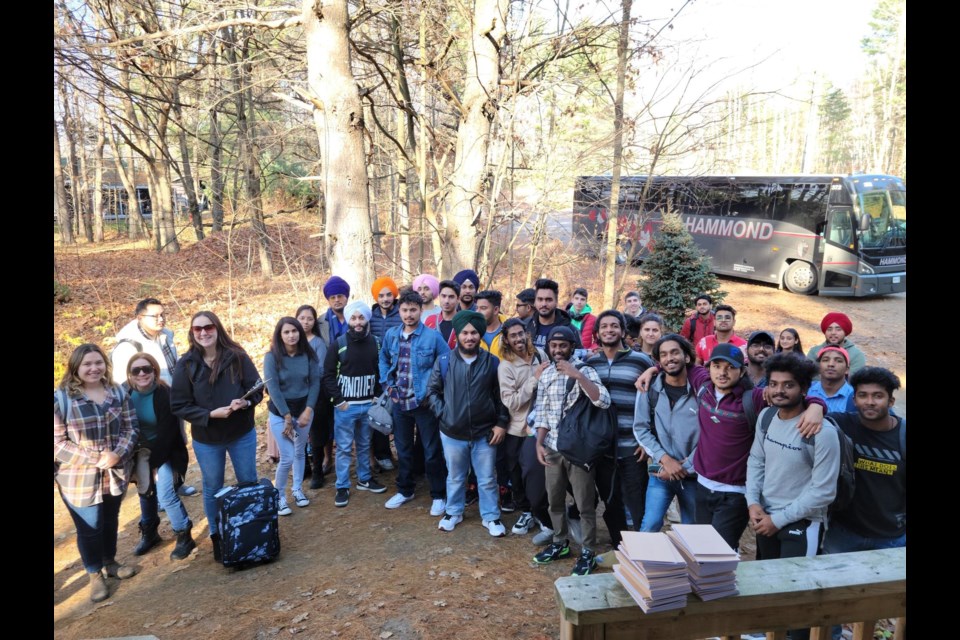NEWS RELEASE
GEORGIAN COLLEGE
******************************
Georgian College introduced a new course this fall where students in Hospitality – Hotel and Resort Operations Management worked with three Muskoka-area resorts to address sustainability in the hospitality sector.
The course, Sustainable Hotel and Resort Operations, focuses on the United Nations (UN) 17 Sustainable Development Goals and was developed for several reasons said Steven Hilborn, a professor in Georgian’s Hospitality, Tourism and Recreation programs.
“Georgian signing the United Nations Sustainable Development Goals Accord in 2021 was one of the reasons, but those of us in the hospitality industry have always understood the precarious balance we maintain with our environment,” said Hilborn. “The majority of tourism is based in areas of natural beauty and ecological significance, and while the industry is dependent on those who travel to experience these beautiful environments, we must take steps to ensure they’re protected.”
For the past 14 weeks, 143 third-semester students worked on developing a Sustainability Action Plan Report with three local resorts – Muskoka Beer Spa, Grand Tappattoo Resort and the Sherwood Inn.
"We were very excited to see Georgian students learning and embracing sustainability in the tourism industry,” said Melissa Whittle, director of sales and general shenanigans, Muskoka Beer Spa. “With tourism being a significant part of the local economy, it’s imperative that we all work together to not only keep Muskoka beautiful but encourage businesses, guests and local residents to keep sustainability front of mind. We look forward to building a solid foundation for those in the community and everyone in the future."
The students also worked with Green Step Solutions – a green certification based in British Columbia who provided oversight and context, and Regional Tourism Organization 12 (Explorer's Edge) who provided funding. They have a new mission statement to help ensure sustainable activity within their tourism area.
During the course students learned about the UN sustainability goals, the three pillars (economics, environment and social) and ways to apply them in real-world scenarios. After spending the first half of the semester in the classroom, they went out to the resorts and conducted their own sustainability audits. This included staying at the resort, eating in their restaurants, touring the resort and meeting with management.
Students finished the semester by presenting their final reports to the partner resorts. In addition to learning about the importance of sustainability, they also learned the importance of motivation noting that the best recommendations were the ones that could be easily implemented, did not impact the customer's experience negatively, helped the environment and local area, and saved the business money.
Rie Asada, an international student from Japan, said he learned that we need to be better for our environment, our guests and also for our employees.
“In my home city Kyoto, I used to be annoyed at the strict policy of separating waste, and I only took public transportation because I was too scared to drive,” said Asada. “Since being in Canada, I only realize now I was being sustainable. In this course I learned about what’s happening in the world, what sustainability is, and what I can do about it. I have to be willing to do more things, such as using less water, finishing all the food I buy, or unplugging unused home appliances. However, these are practices of the general people, and the hospitality industry requires further steps.”
The course will be offered again next fall and students will work with three different resorts. If you’re a resort operator looking to participate next year, reach out to Steven Hilborn at [email protected].
******************************



